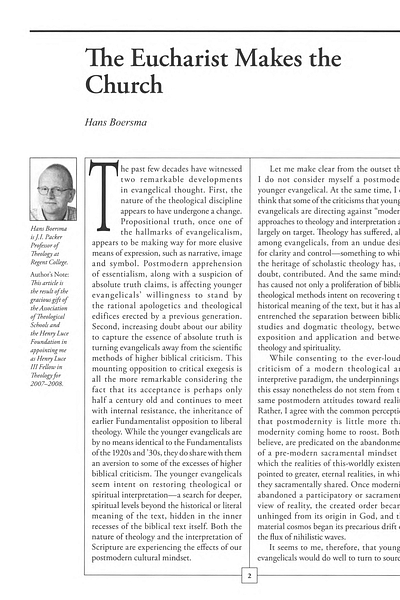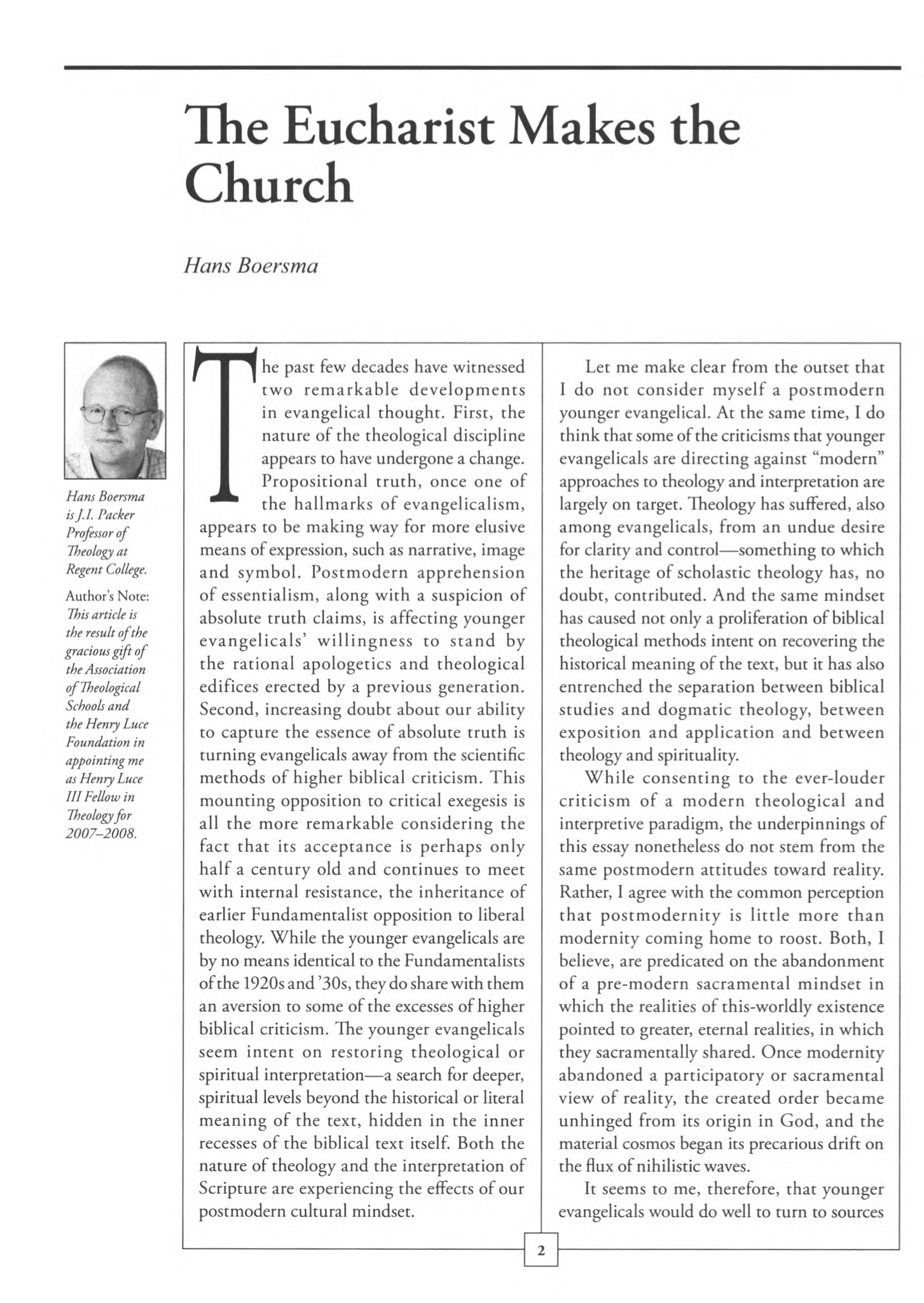Crux Winter 2008 / Vol.44, No.4
The past few decades have witnessed two remarkable developments in evangelical thought. First, the nature of the theological discipline appears to have undergone a change. Propositional truth, once one of the hallmarks of evangelicalism, appears to be making way for more elusive means of expression, such as narrative, image and symbol. Postmodern apprehension of essentialism, along with a suspicion of absolute truth claims, is affecting younger evangelicals’ willingness to stand by the rational apologetics and theological edifices erected by a previous generation. Second, increasing doubt about our ability to capture the essence of absolute truth is turning evangelicals away from the scientific methods of higher biblical criticism. This mounting opposition to critical exegesis is all the more remarkable considering the fact that its acceptance is perhaps only half a century old and continues to meet with internal resistance, the inheritance of earlier Fundamentalist opposition to liberal theology. While the younger evangelicals are by no means identical to the Fundamentalists of the 1920s and ’30s, they do share with them an aversion to some of the excesses of higher biblical criticism. The younger evangelicals seem intent on restoring theological or spiritual interpretation— a search for deeper, spiritual levels beyond the historical or literal meaning of the text, hidden in the inner recesses of the biblical text itself Both the nature of theology and the interpretation of Scripture are experiencing the effects of our postmodern cultural mindset.
Download


